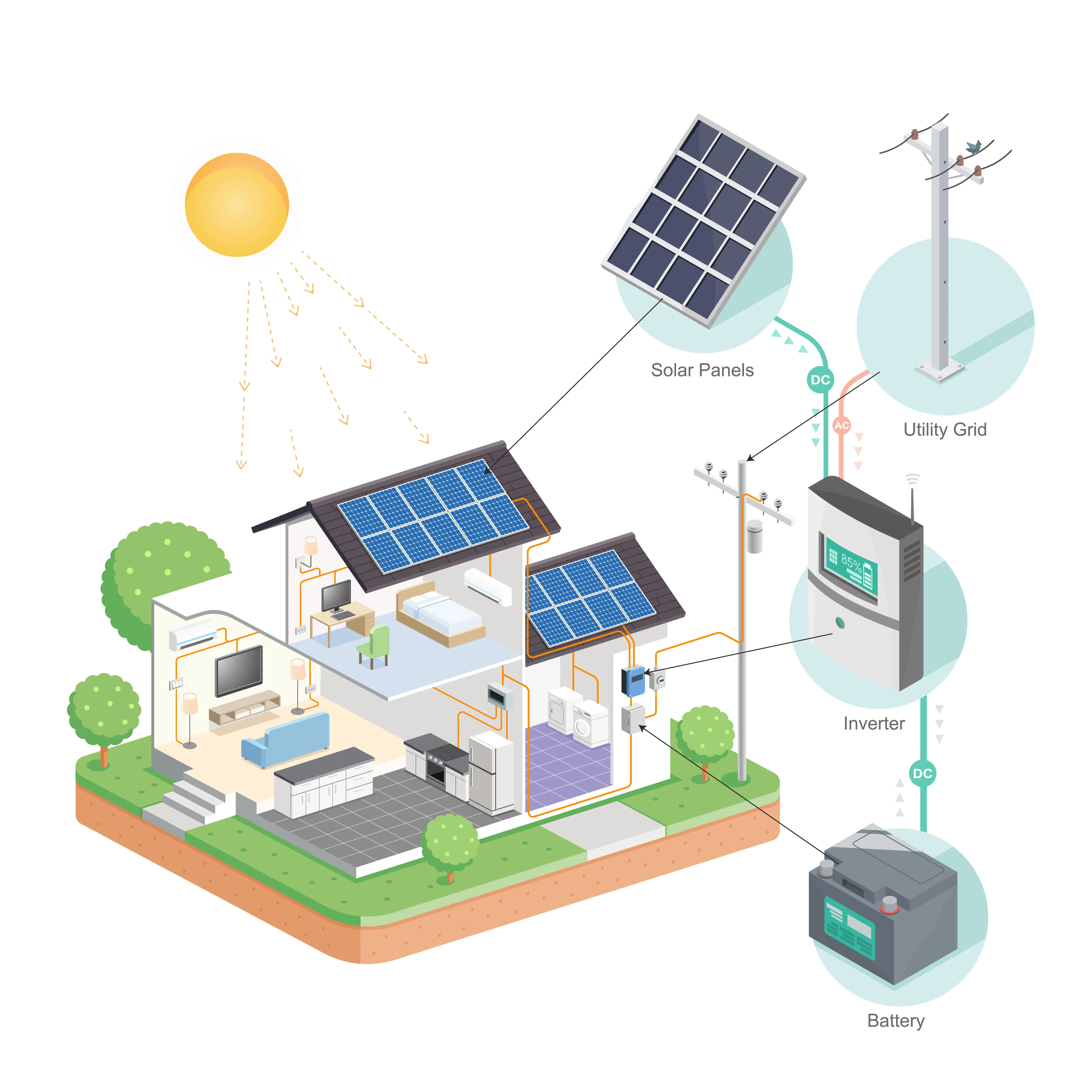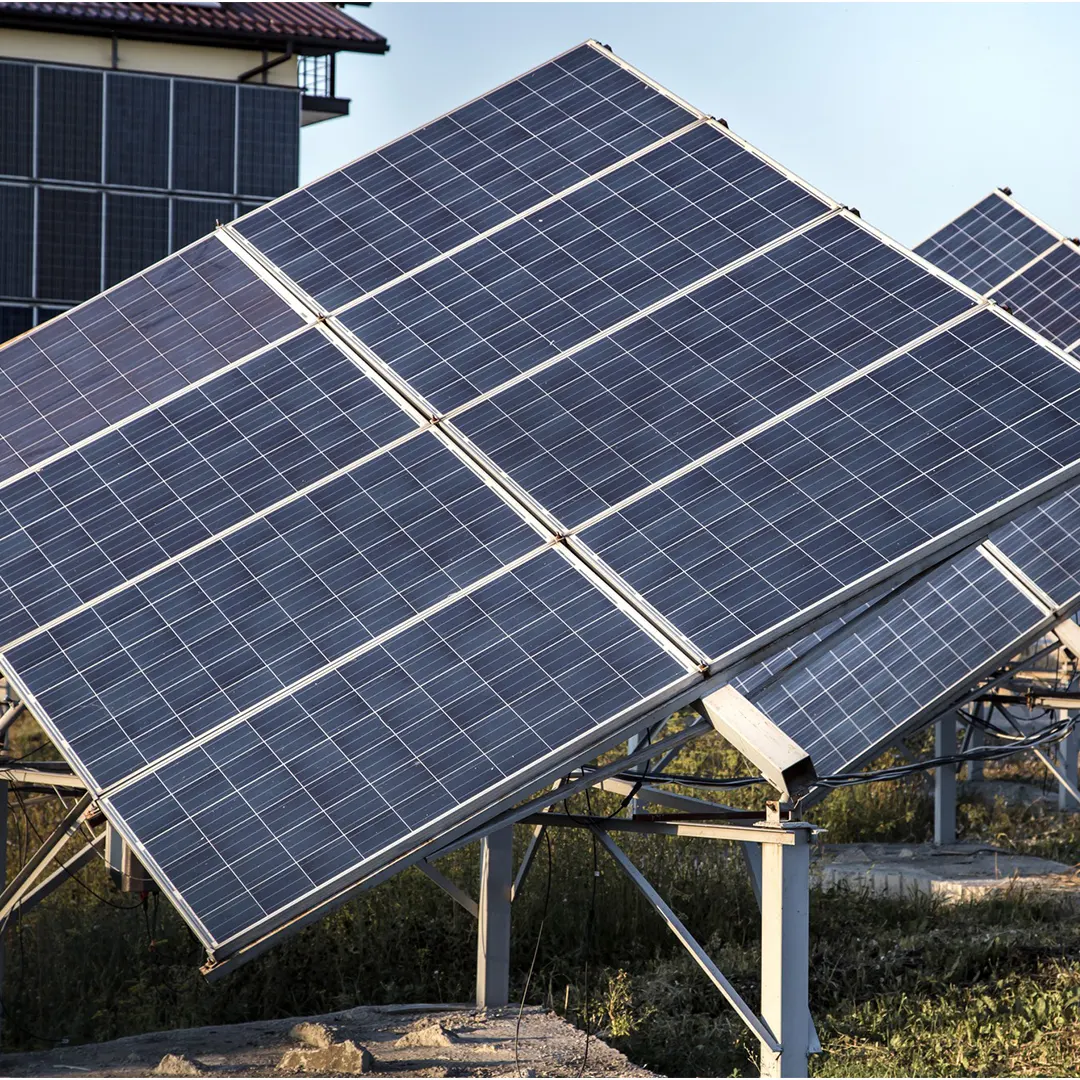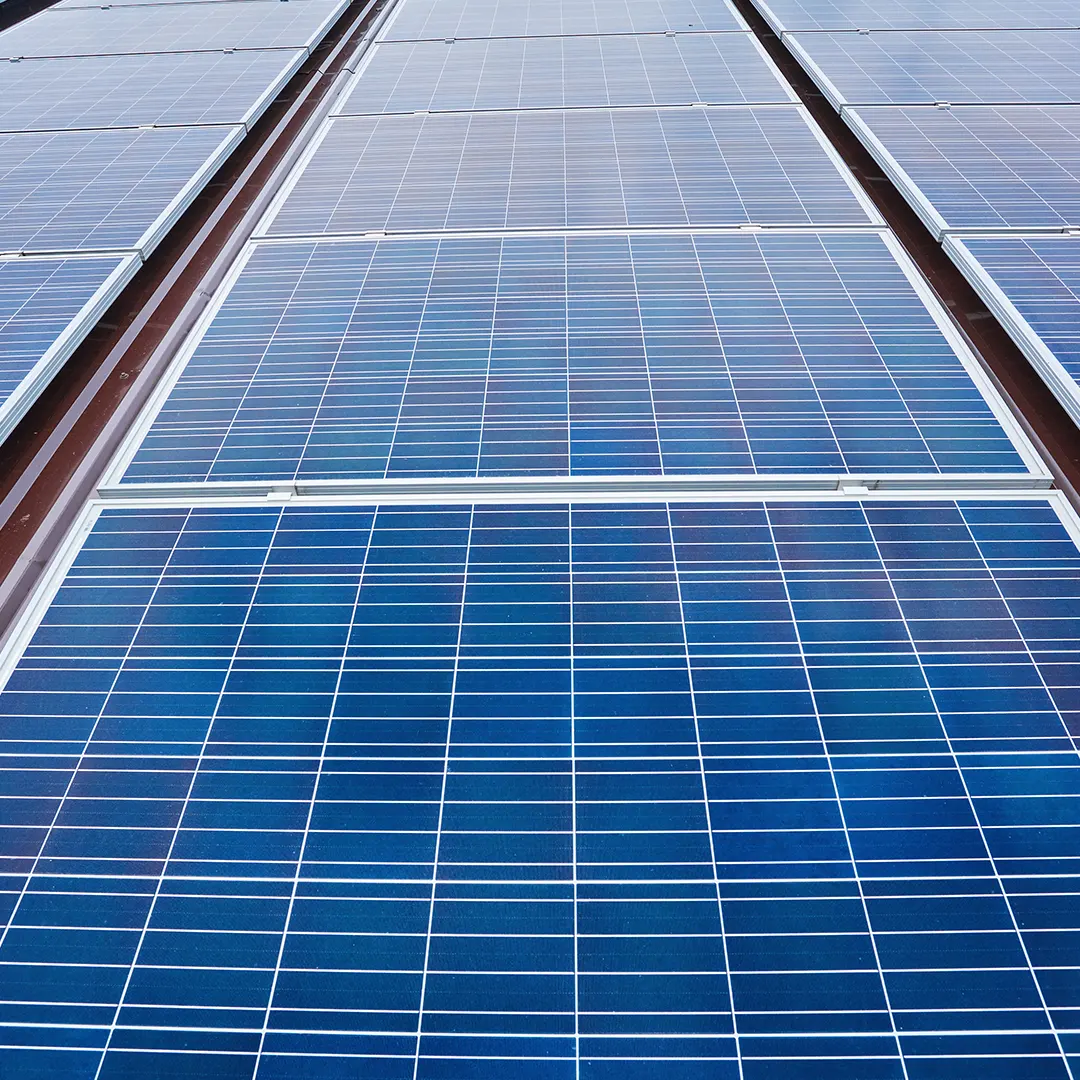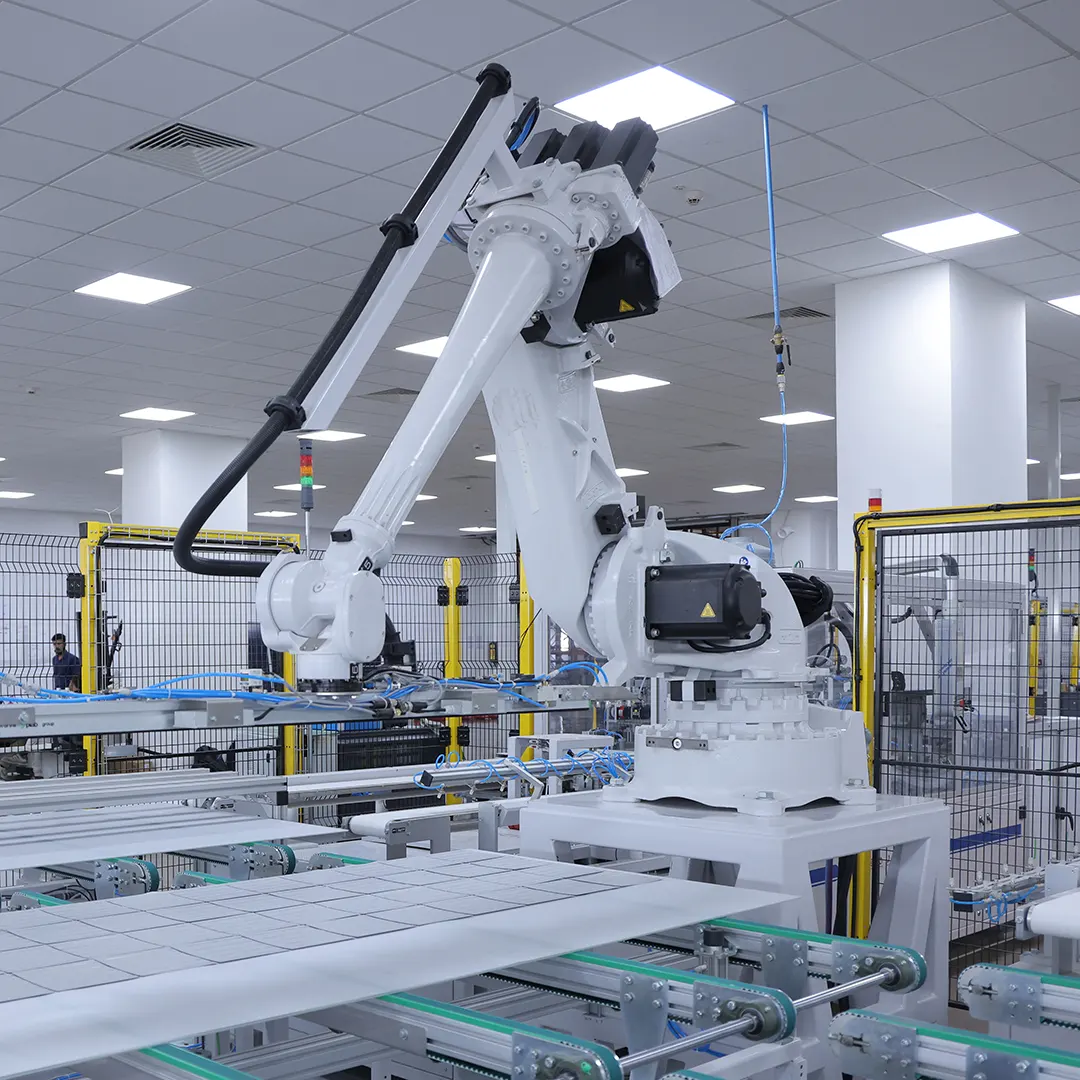
Introduction to Hybrid Solar Systems
The global transition to renewable energy has propelled innovations in solar energy solutions. Among them, hybrid solar systems have emerged as a powerful, efficient solution for energy management. Combining solar PV modules with battery storage and grid connectivity, hybrid systems address energy needs for both residential and commercial users.
This blog explores the importance, applications, and benefits of hybrid solar systems while highlighting innovations by leading solar module manufacturers .
What is a Hybrid Solar System?
A hybrid solar system combines the benefits of solar energy with a backup power source, such as the electrical grid or battery storage. Simply put, it’s a solar setup that stores excess energy for times when solar production drops or the grid fails.
How It Differs from Traditional Solar Systems: Traditional solar systems depend solely on solar energy and often rely on the grid when sunlight is unavailable. In contrast, hybrid systems include battery storage, offering greater flexibility and reliability. They allow you to use stored energy during low sunlight periods or grid outages, reducing dependence on external power sources and ensuring uninterrupted energy supply.

Key Components of a Hybrid Solar System
Solar Panels: The core component of the system, responsible for converting sunlight into usable electricity.
Inverter: Transforms the direct current (DC) produced by the solar panels into alternating current (AC), which powers most household appliances.
Battery Storage: Captures and stores surplus energy generated during the day for use at night or during cloudy conditions.
Grid Connection: Enables you to draw power from the grid when needed and send excess solar energy back to the grid, potentially earning credits.
Charge Controller: Regulates the flow of electricity between the solar panels, batteries, and grid, ensuring efficient charging and safe discharging of the batteries.

How Does a Hybrid Solar System Work?
Hybrid solar systems work through an intelligent integration of solar PV modules and battery storage:
Energy Generation: During the day, solar modules harness sunlight and generate electricity.
Battery Charging: Surplus energy produced by the solar panels is routed to the battery storage system. The charge controller optimizes the charging process and safeguards the batteries by preventing overcharging
Energy Utilization: Stored energy powers the home or facility during non-sunny hours or outages.
Grid Backup: When the batteries are depleted, the system seamlessly draws power from the electrical grid to maintain an uninterrupted energy supply. On the other hand, if the batteries are fully charged, any surplus energy can be fed back into the grid, potentially earning you credits on your utility bill.
Importance of Hybrid Solar Systems
1. Energy Independence: With hybrid systems, users can reduce reliance on the power grid. During outages or fluctuating power availability, the stored energy in batteries provides uninterrupted electricity.
2. Cost-Effective Energy Solution: By utilizing stored energy during peak tariff hours, hybrid solar systems significantly cut electricity costs. Additionally, advancements by solar module manufacturers in energy-efficient technologies have made these systems more affordable.
3. Promoting Renewable Energy: Hybrid solar systems combine sustainability and energy efficiency. Innovations in solar module structures ensure better power generation even in low-light conditions.
4. Reliable Backup Power: Unlike grid-tied systems that fail during outages, hybrid systems provide reliable backup, making them ideal for homes, businesses, and industries.


Applications of Hybrid Solar Systems
Residential Use: Hybrid solar systems are increasingly popular in residential settings for:
- Reducing monthly electricity bills.
- Providing backup power during grid failures.
- Ensuring sustainable and clean energy usage.
With advancements in the latest technology in solar panels, homeowners can maximize efficiency.
Commercial and Industrial Use: Businesses can benefit from hybrid systems to reduce operational costs and ensure continuous power supply. High-quality systems offered by solar module manufacturers make them a cost-effective investment for industries.
Remote Areas: In remote or rural areas where grid power is unavailable or unreliable, hybrid solar systems offer a sustainable solution for energy access.
Agricultural Sector: Farmers use hybrid solar systems to power irrigation systems, machinery, and lighting. Solar module structures are optimized to withstand diverse climatic conditions for reliable performance.
Educational Institutions: Schools and universities adopt hybrid systems to reduce energy costs and support green initiatives.
Latest Technology in Hybrid Solar Systems
Advanced Solar PV Modules:
- Modern solar PV modules are designed for higher efficiency, durability, and performance.
- Manufacturers are adopting monocrystalline and bifacial technologies for improved output.
Advanced Monitoring and Control:
- Cutting-edge mobile apps for real-time energy monitoring and system control.
- Effortless smart home integration for optimized energy management.
Enhanced Battery Technologies:
- Compatibility with high-capacity lithium-ion batteries offering extended lifespans.
- Integration with advanced battery innovations, such as solid-state batteries.
Artificial Intelligence Integration:
- AI-driven predictive algorithms for efficient energy management.
- Machine learning technology to optimize system performance by analyzing usage patterns.
Advantages of Hybrid Solar Systems
Uninterrupted Power Supply: Energy storage ensures power availability 24/7.
Reduced Energy Costs: Hybrid systems significantly lower monthly energy bills.
Scalability: Hybrid systems can be scaled up to meet growing energy needs.
Eco-Friendly: Reduces carbon footprint and promotes renewable energy usage.
High Efficiency: Innovations by top photovoltaic panels manufacturers ensure better performance.
Choosing the Right Hybrid Solar System
Energy Needs: Evaluate your household's energy consumption patterns to determine the right system size and capacity.
Budget: While hybrid systems have higher upfront costs due to battery storage, factor in the long-term savings on electricity bills.
Battery Capacity: Select batteries with adequate capacity to meet your backup power requirements and maintain a reliable energy supply.
Quality and Warranty: Opt for high-quality components backed by dependable warranties to ensure long-lasting performance and durability.
Professional Installation: Partner with skilled and experienced installers to guarantee proper and efficient system setup.
For high-performance solar systems, check out PIXON's products .


Why Choose PIXON?
Advanced Technology: Incorporating the latest technology in solar panels.
Reliability: High-quality solar module structures for maximum performance.
Customer Support: Seamless support from installation to maintenance.
Explore more about our solar modules here .
Wrapping Up
Hybrid solar systems are a revolutionary solution for sustainable and efficient energy management. Combining advanced solar module structures with smart technologies, they address residential, commercial, and industrial energy needs.
Investing in hybrid solar systems reduces energy costs, promotes renewable energy, and ensures reliable backup power. As one of the top solar panel manufacturers , PIXON offers cutting-edge solar solutions tailored to meet diverse energy requirements.
To learn more or inquire about our products, Contact Us today.
FAQs on Hybrid Solar Systems
Hybrid systems include battery storage for backup, while grid-tied systems rely solely on the power grid.
Yes, hybrid systems store excess energy in batteries, providing power during non-sunny hours.
Absolutely! Hybrid systems are ideal for homes, offering energy savings and reliable backup power.
With proper maintenance, hybrid systems can last 25+ years, with batteries typically lasting 8-12 years.
System size, battery capacity, and the quality of solar PV modules significantly affect the cost.